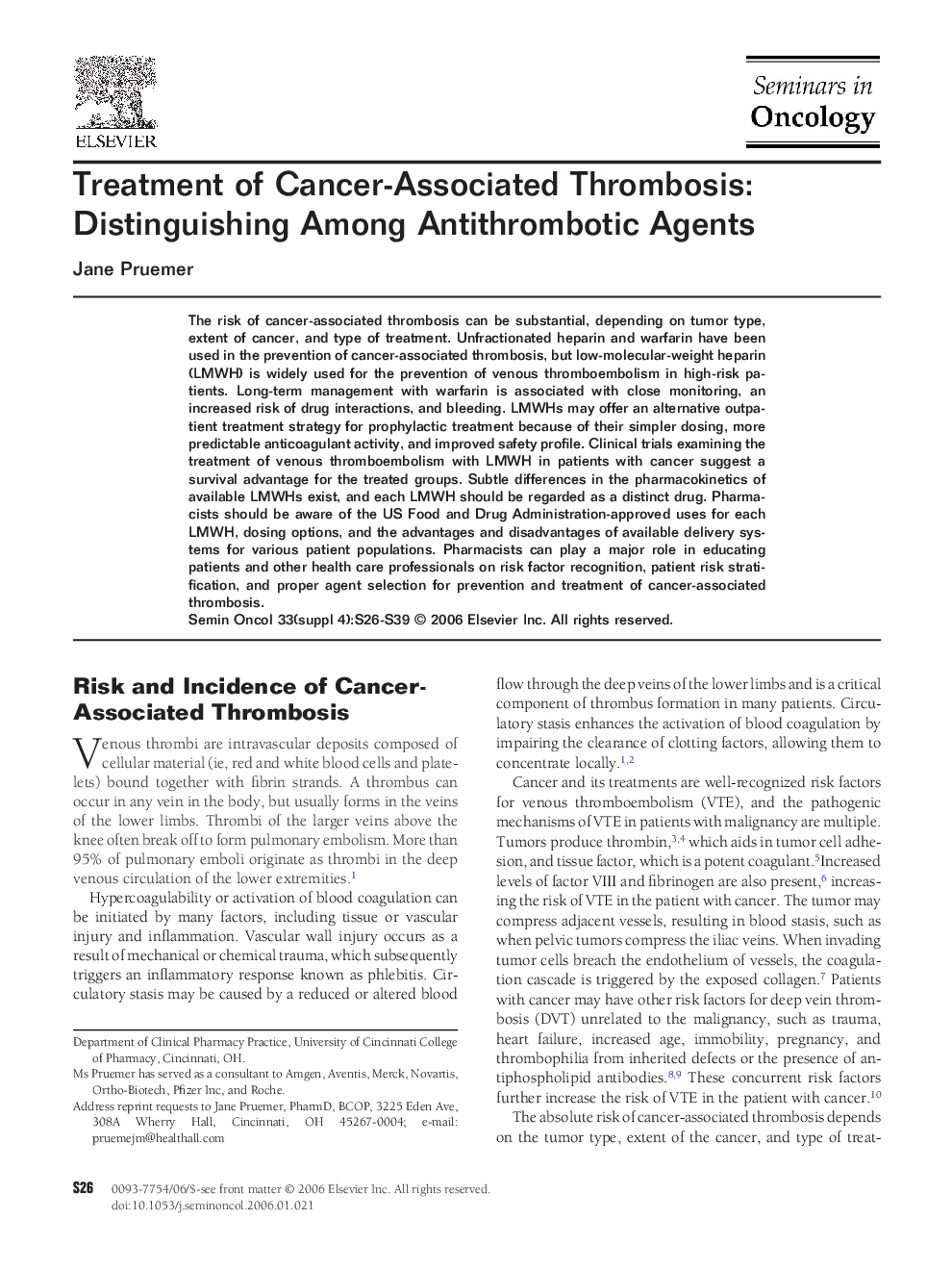| کد مقاله | کد نشریه | سال انتشار | مقاله انگلیسی | نسخه تمام متن |
|---|---|---|---|---|
| 2163060 | 1091287 | 2006 | 14 صفحه PDF | دانلود رایگان |
عنوان انگلیسی مقاله ISI
Treatment of Cancer-Associated Thrombosis: Distinguishing Among Antithrombotic Agents
دانلود مقاله + سفارش ترجمه
دانلود مقاله ISI انگلیسی
رایگان برای ایرانیان
موضوعات مرتبط
علوم زیستی و بیوفناوری
بیوشیمی، ژنتیک و زیست شناسی مولکولی
تحقیقات سرطان
پیش نمایش صفحه اول مقاله

چکیده انگلیسی
The risk of cancer-associated thrombosis can be substantial, depending on tumor type, extent of cancer, and type of treatment. Unfractionated heparin and warfarin have been used in the prevention of cancer-associated thrombosis, but low-molecular-weight heparin (LMWH) is widely used for the prevention of venous thromboembolism in high-risk patients. Long-term management with warfarin is associated with close monitoring, an increased risk of drug interactions, and bleeding. LMWHs may offer an alternative outpatient treatment strategy for prophylactic treatment because of their simpler dosing, more predictable anticoagulant activity, and improved safety profile. Clinical trials examining the treatment of venous thromboembolism with LMWH in patients with cancer suggest a survival advantage for the treated groups. Subtle differences in the pharmacokinetics of available LMWHs exist, and each LMWH should be regarded as a distinct drug. Pharmacists should be aware of the US Food and Drug Administration-approved uses for each LMWH, dosing options, and the advantages and disadvantages of available delivery systems for various patient populations. Pharmacists can play a major role in educating patients and other health care professionals on risk factor recognition, patient risk stratification, and proper agent selection for prevention and treatment of cancer-associated thrombosis.
ناشر
Database: Elsevier - ScienceDirect (ساینس دایرکت)
Journal: Seminars in Oncology - Volume 33, Supplement 4, April 2006, Pages 26-39
Journal: Seminars in Oncology - Volume 33, Supplement 4, April 2006, Pages 26-39
نویسندگان
Jane Pruemer,